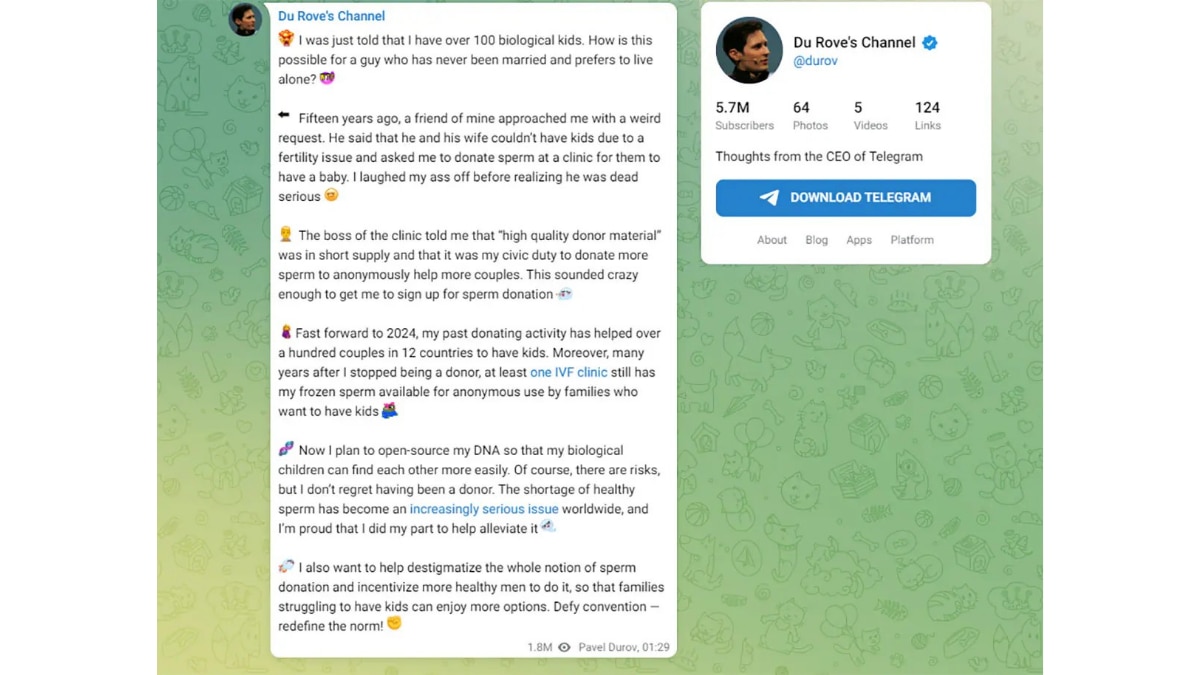Real-Life Vicky Donor?: Telegram CEO Pavel Durov Says He Has More Than 100 Biological Children
Notably, Telegram co-founder Pavel Durov has never been married and has preferred a solitary lifestyle.

The chief executive and co-founder of the encrypted messaging app Telegram has made a startling announcement about his personal life. Telegram founder Pavel Durov has disclosed to his millions of followers that he has fathered over a hundred children across 12 nations through sperm donation. This revelation came in the form of an message shared on his official Telegram channel, where he detailed his past involvement in donating sperm, the media has reported.
Durov's statement suggests that he has been an active participant in sperm donation programmes. Durov has never been married and preferred a solitary lifestyle. His announcement, shared on Telegram, quickly gained traction, garnering nearly two million views. The news also spread to other social media platforms, including Elon Musk-owned X, previously known as Twitter, where it got mixed reactions from users.
Also read: WhatsApp To Introduce Double-Tap Reaction Feature Soon. Know Everything
Pavel Durov's Sperm Donation Journey

In a recent post to his vast audience on Telegram, Durov recounted an incident from approximately 15 years ago when a close acquaintance approached him with an unusual request. The friend, struggling with fertility issues, asked Durov to consider donating sperm at a clinic to help them conceive. Initially, Durov found the proposition amusing but soon realised the seriousness of the request. According to Durov's account, the clinic's director informed him of a significant shortage of high-quality donor material.
Also read: Oppo Reno 12 5G Review: Excelling In The Mid-Range Segment
The medical professional reportedly encouraged the tech entrepreneur to continue donating, framing it as a civic responsibility that could assist more couples anonymously in their quest to have children.
Reflecting on his past decisions, Durov acknowledged the potential risks associated with sperm donation but stated he harbors no regrets about his participation. He highlighted the growing global concern over the scarcity of healthy sperm donors, framing his contributions as a positive effort to address this issue.





































